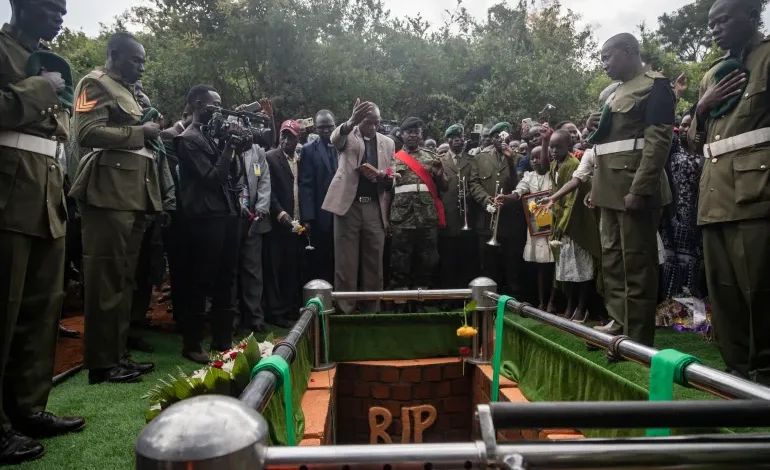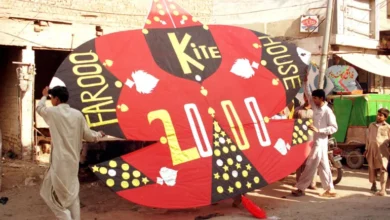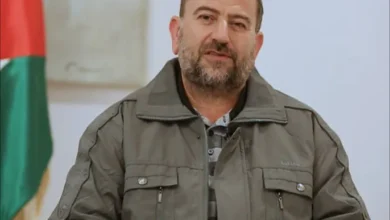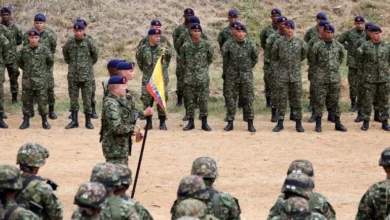‘Will I be next?’: Fear haunts Kenyan women athletes after Cheptegei murder

It was a sun-baked August day on the streets of the French capital, Paris, when Rebecca Cheptegei rushed across the finish line of the women’s marathon at the 2024 Summer Olympics.
The 33-year-old elite long-distance runner came only 44th in the race, but Uganda’s women’s marathon record holder was riding the high of her first Olympic Games, with years of races ahead of her.
But just four weeks later, she was dead – murdered by her ex-partner at her home in the quiet village of Kinyoro in Kenya’s western Rift Valley region.
The horror of her killing left East Africa reeling. For years, women have suffered physical and sexual abuse, including gruesome murders, from partners, spouses and other male family members in Kenya. Cheptegei’s killing underscored how even successful, elite athletes weren’t safe.
Yet, according to female athletes and the organisations supporting them, it is the very success these women achieved that may have made them a target among men still governed by more patriarchal gender norms.One in three women in Kenya reports at least a case of abuse by the age of 18, according to Kenyan charity, the Gender Violence Recovery Centre, largely from their intimate male partners, male family members, or other males known to them.
In January this year alone, there were at least 32 women murdered by male perpetrators – about one woman every day – according to Femicide Count Kenya, a monitoring group tracking media-reported femicides – or the intentional murder of a woman by a man.
Although hundreds of women marched in the streets of Nairobi calling for an end to violence against women in a massive January demonstration, the killings have continued through the year, said Audrey Mugeni, co-founder of Femicide Count.
“We had 154 cases by the end of last year … we are already at 174 now,” Mugeni said.
At the present rate of killings, the femicide count for 2024 will pass 200 cases by the end of the year, she added.
Elite athletes not spared
Kenya has a thriving athlete community. In the western Rift Valley where Cheptegei lived, pro and amateur runners from the region or abroad train, as very high altitudes – about 8,000 feet (2,500 metres) above sea level – help athletes gain better stamina, and make competing at lower altitudes a breeze.
About three hours from Cheptegei’s village of Kinyoro, the rural town of Iten – with its rolling hills and dirt roads – is the Rift Valley’s running capital. Young people there, including girls, get into the sports early on, inspired by the success stories of locals like Eliud Kipchoge and Mary Keitany who are now international stars. Many are motivated by the promise of fame and earnings that can help them get out of poverty.
However, because of their success as Olympians, world champions, and national stars, female athletes face high levels of emotional and physical violence from males jealous of their success or looking to control their earnings, female athletes say.
Cheptegei, who was originally from Bukwo, a town on the Kenya-Uganda border, lived and trained in Kenya, but competed for Uganda.
As a pro runner, she recently hit several high points in her career: she’d won gold in 2022 at the World Mountain and Trail Running Championships in Chiang Mai, Thailand, and finished second at the November 2023 Florence Marathon in Italy.
After finishing 44th at her Olympics race in Paris, Cheptegei returned to Kinyoro. On Sunday, September 1, she had just arrived home from a church service when her ex, Dickson Ndiema Marangach, jumped at her, threw fuel on her and set her alight, according to neighbours who spoke to local journalists.
Doctors said Cheptegei suffered burns on more than 80 percent of her body by the time she was rushed to a hospital in Eldoret county. She died four days later after all her organs failed.
On September 9, Marangach, who’d also sustained burns as he attempted to douse Cheptegei in even more petrol, died in hospital.
The two had disputed over the small piece of land where Cheptegei built her home in Kinyoro, in a bid to be closer to training facilities in the region. Cheptegei’s brother, Jacob, told the BBC that the two had lived together, but then had started to fall out over money in 2023, as Marangach started to question Cheptegei over what she did with her earnings.
After the attack, the head of Uganda’s Olympic Committee, Donald Rukare, decried Marangach’s “vicious attack” against Cheptegei, while the Paris Olympics organisers said the “despicable crime reminds us of the alarming reality of violence affecting too many women in society”.
In September 2021, she put on a dazzling performance in Germany, smashing the world record in the 10,000km world women’s race – called the 10k road race.
Barely a month later, on October 13, she was found stabbed to death in her home in Iten. Police confirmed her husband and coach, Ibrahim Rotich, was the main suspect. Tirop was only 25.
For years, the runner’s family witnessed Rotich’s interactions with Tirop, who was 15 years his junior. He first befriended and then started to date the young girl in her teen years. Her brother, athlete Martin Tirop who discovered her body, told The New Yorker magazine in 2022 that Tirop’s parents had tried to warn her against Rotich, but she dropped out of school and secretly married him. Towards the end, however, the athlete told her siblings that she planned to leave Rotich.
“I kind of blame myself, even though there were no signs, because Agnes always kept to herself,” Viola Lagat, Tirop’s friend, and fellow long-distance pro runner, told Al Jazeera. She once noticed Tirop had an injury, which she now suspects was caused by Rotich, but Lagat says she did not press her about it at the time.
“She’s not someone who would tell you that she has any trouble. You wouldn’t know that she was going through anything. And that’s something that still amazes me, that she was being abused, and she’s breaking a world record during a very tough time in her life,” she said.










